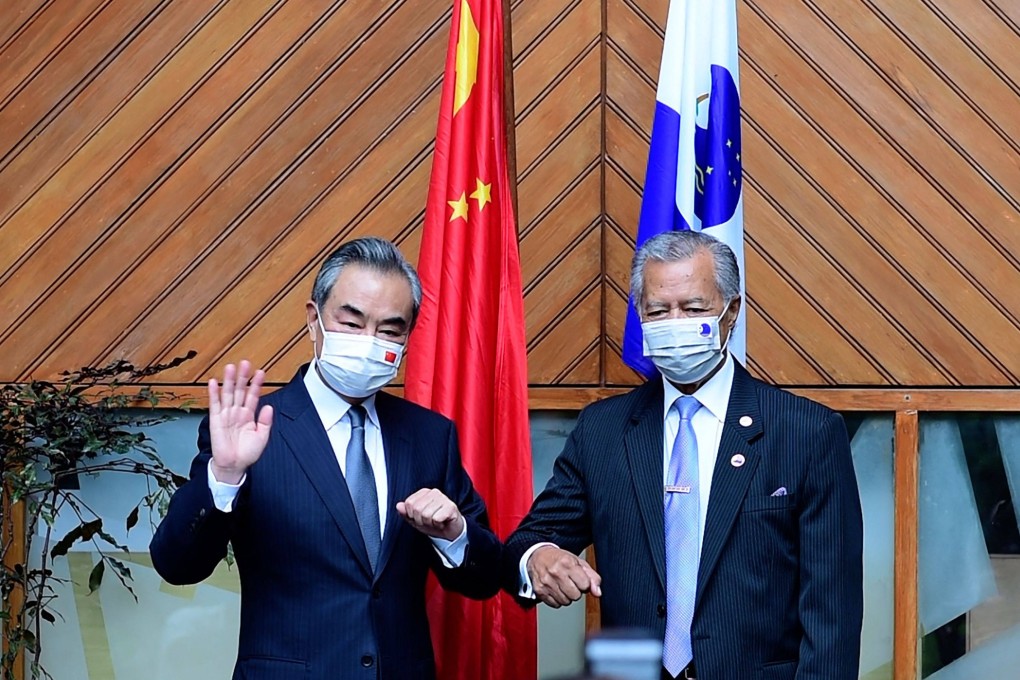US views on China ‘gone seriously awry’, Chinese foreign minister warns during Pacific tour
- Wang Yi’s comments follow top US diplomat Antony Blinken’s policy speech calling China the ‘most serious long-term’ threat to world order
- The US is the ‘source of chaos’ for the global order and China does not wish to compete in a ‘vicious’ way, Wang asserts

Wang’s remarks came in response to a speech by Blinken accusing China of undermining the global order and pledging to work more closely with US allies and other countries to counter Beijing’s influence.
Speaking during a visit to Fiji as part of his eight-nation tour of the South Pacific, Wang said the world was not the world the US portrayed and China was not the China the US imagined.
“We want to tell the US side that Sino-US relations are not a zero-sum game designed by the US,” Wang said on Saturday, according to a readout released by the Chinese foreign ministry.
“[Washington should] first realise that unipolar hegemony is unpopular, group confrontation has no future, small yards and high walls are closed and regressive, and decoupling and cutting off supply is detrimental to people and themselves,” Wang said of Washington’s relations with Beijing.
China was willing to compete with the US, but not in a “vicious” way, he said.
“We never give in to blackmail and coercion, and will firmly defend China’s sovereignty, security and development interests. Any suppression and containment will only make the Chinese people more united, and the Chinese have the backbone and ambition to do so.”
